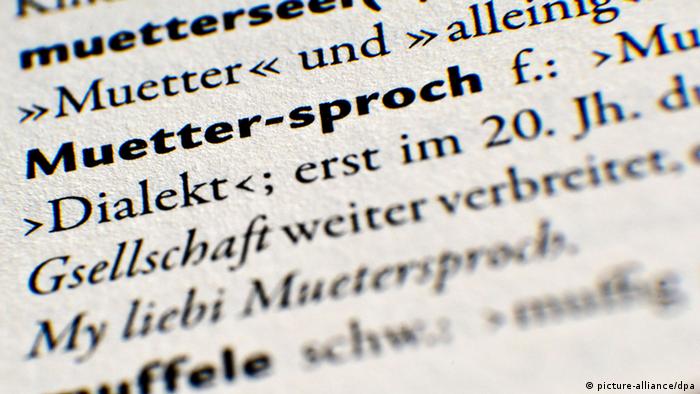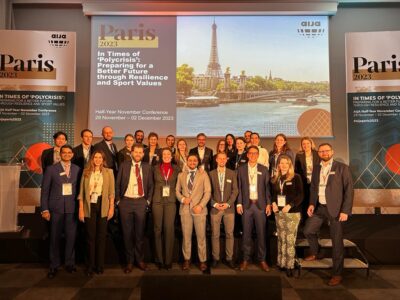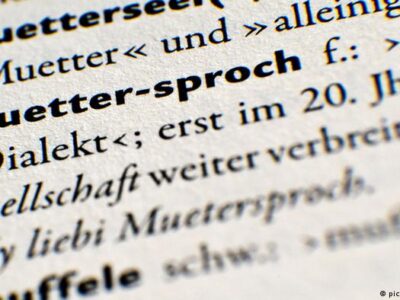The German offshoot

My relationship with Germany began when my mother enrolled me in a German school entrance course as a child. I had no interest in it, I was 10 years old and wanted to stay with my friends at the local school.
At the time, the German School in Barcelona offered entry to Catalan children in their fourth year of primary school. After a course and a series of tests, the children were placed in a fifth grade parallel to the other groups who had already been at the school since kindergarten and received intensive German grammar lessons to catch up with the others and mix with them a few grades later.
Against my fervent wishes, I was accepted and 10-year-old Alba, who wanted to stay at her old school for the rest of her life, started at a new school.
And from then until the Abitur, I gradually and without realising it learned all the German I know now, which is not native-speaker level, but quite a lot.
What fascinates me most about the German language is the possibility of forming new words. The linguistic creativity that German grammar allows beyond the prejudices we have. I soon discovered that I couldn’t find all the words that I read in the textbooks in the dictionary: some words were themselves formed from the composition of other words, and in these cases you had to know how to break them down first, find the separation, like the parts of a grilled chicken, and then, knife in hand, separate the pieces one by one to look for their meaning.
Strangely enough, I am also fascinated by the inner system of the German language. The syntactic order justifies everything: it doesn’t matter if the verb is sometimes at the end of the sentence, after a long string of nouns creatively formed by putting other nouns together. The verb will always be there, you can be sure that it will come and that it conveys the essential meaning of the sentence. In a subordinate clause, one begins reading with a tense heart, like someone jumping off a diving board, waiting with bated breath for the end of the fall, the saving impact of feet on water, to find the verb. But you always touch the water: you can count on it, the verb always arrives. And so, when one is finally in the water, one will look back on the jump and see the sentence as a compound of structures that fit together perfectly. The understanding after the intervention has a comforting effect, whispering to you that you yourself will soon master the technique too.
And as this happens, from then on one will want to be the one who asks others to make the leap in one’s sentence, and one will enjoy finding the opportunity to make very long but perfectly ordered subordinate clauses by, a little vindictively and also, why not admit it, pedantically, forcing others to make the leap in these sentences.
Finally, I stayed at the German school until I was 18, so I did both the Spanish Selectividad and the German Abitur and had therefore also studied in German philosophy, mathematics, history, art, physics and chemistry (the latter within my modest means), sport, etc. and it is possible that at that time I could express some concepts in German rather than in Catalan, although later I found the translations and I can no longer say that I miss German when it comes to explaining derivation, square root or Kant’s golden rule in Catalan.
All in all, I was a new adult with a distinctly Catalan cultural identity, but with small offshoots that had already germinated in a foreign culture, in a place I hadn’t yet lived and didn’t know enough about, but which was intellectually unalterably mine.
So I am grafted, if only a little, from the scion of German thought. And it is this offshoot that has challenged me ever since, and from time to time, even when I wanted to deny it, told me that I had to satisfy it. That’s why I chose Germany for my Erasmus programme and lived and studied in Bavaria for a year, and that’s why I work as a lawyer in contact with German lawyers, prosecutors and clients. Even today, after years of doing this and interacting daily in German, both orally and in writing, there is a little part of me that lights up when you consider writing or speaking in German and making the leap in a sentence like I mentioned earlier.
The other day I had to smile when I discovered the word Anlagenkonvolut, which means a “compilation of documents” attached to a lawsuit or court application. The offshoot was reinvigorated and I blossomed a little as I sat in my chair, now no longer at school but in the law office.
Alba Compairé


